Just Transition Work Programme: Can COP 29 turn the page?
As we head towards COP 29, where exactly does the Just Transition Work Programme stand?...
Event Recap
Country:
Colombia,
Indonesia,
South Africa,
Organisation:
IKI JET,
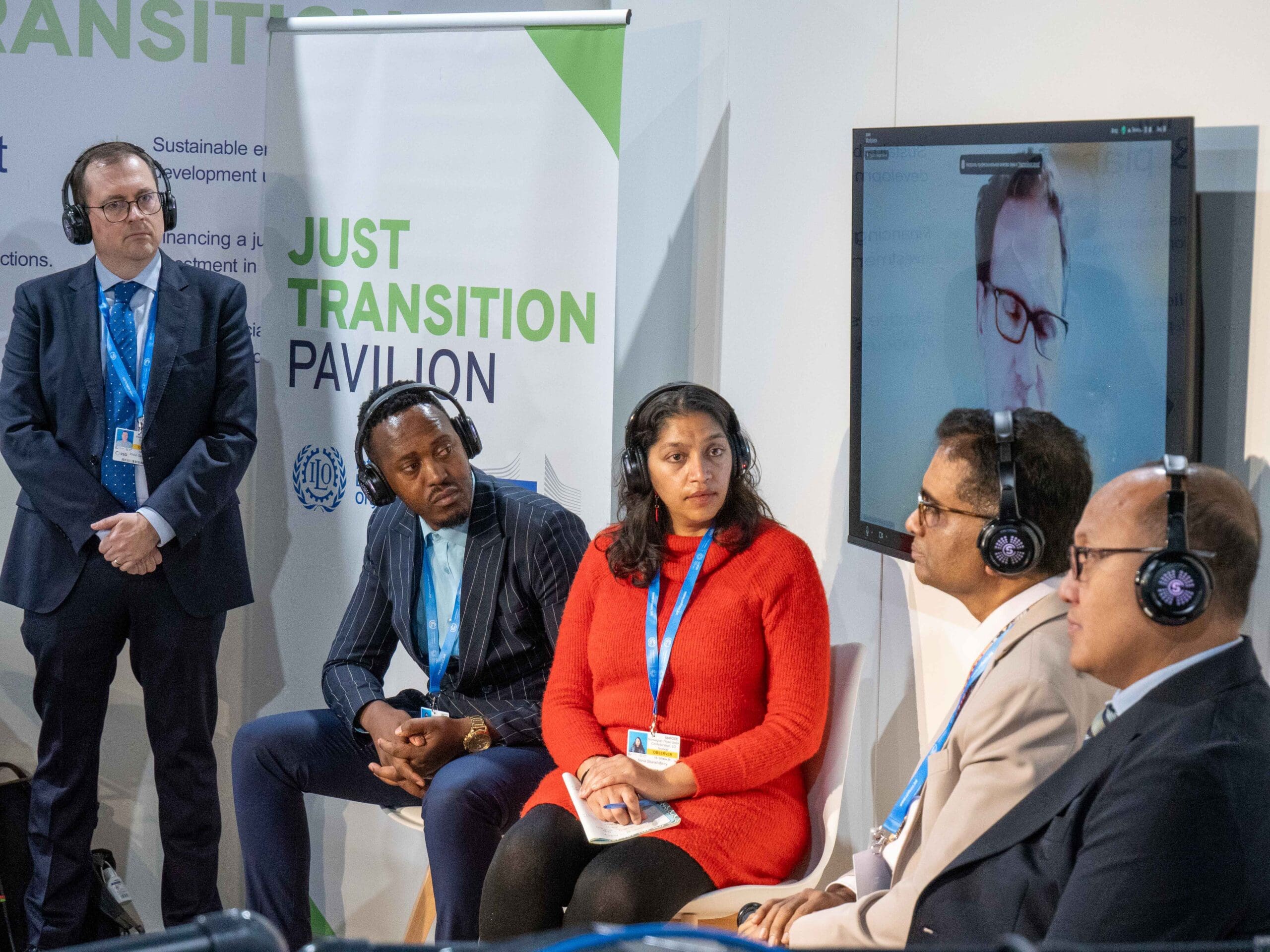
Effective engagement strategies are vital for a truly just transition. At this COP 29 event, organised by the IKI JET project and held on November 14, 2024, at the International Labour Organization Just Transition Pavilion, representatives from local and national governments, civil society, labour, and academia shared their experiences of putting workers and communities at the centre of just transition roadmaps.
By focusing on practical tools from regions deeply affected by the energy transition, including Colombia, South Africa, and Indonesia, the panel highlighted how diverse, context-specific solutions can tackle the real-world challenges of transitioning away from coal in the Global South.
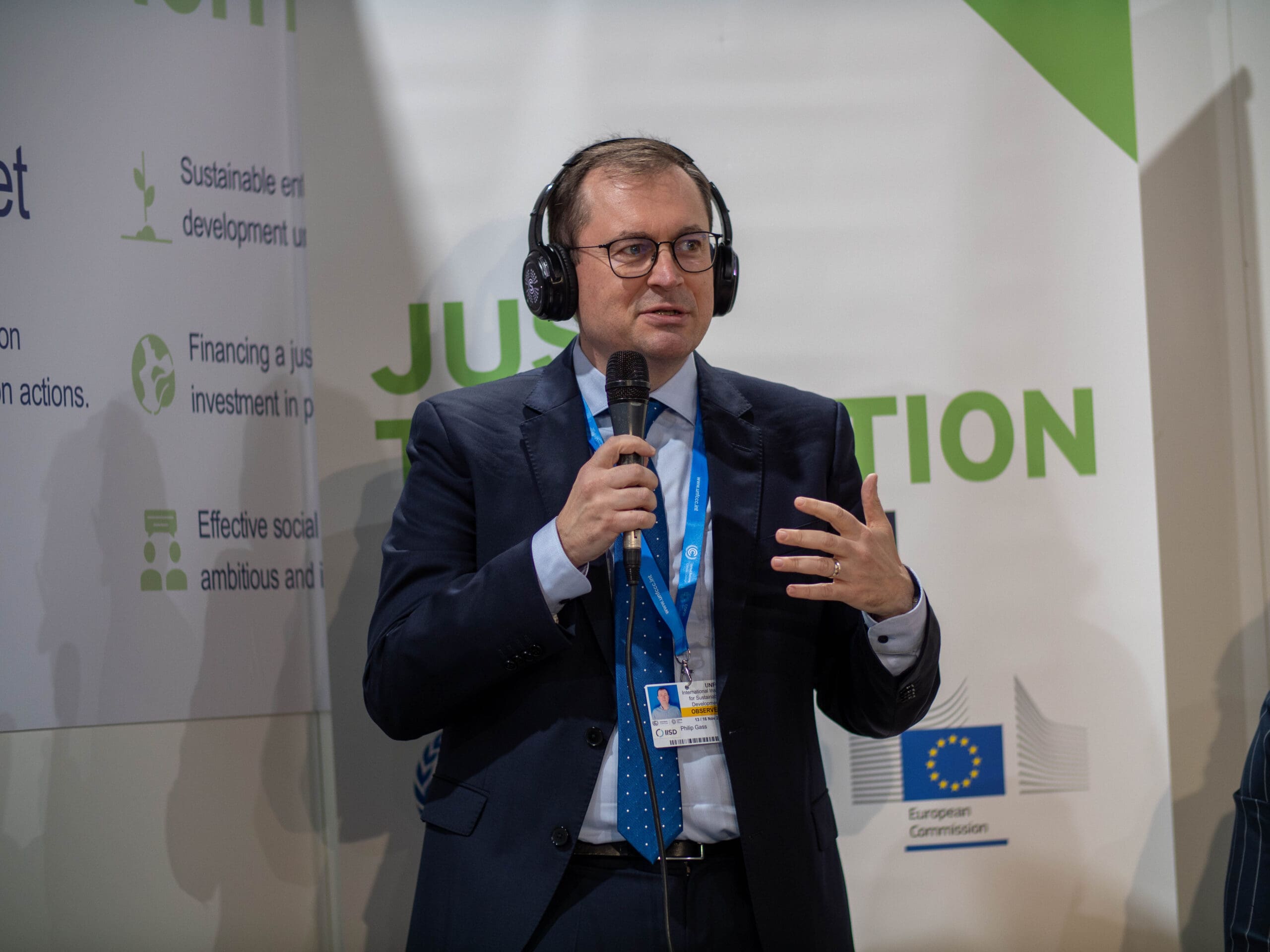
Moderator Philip Gass, International Institute for Sustainable Development (IISD), opened the event by asking panelists to share experiences on the ground engaging with people to achieve just transition.
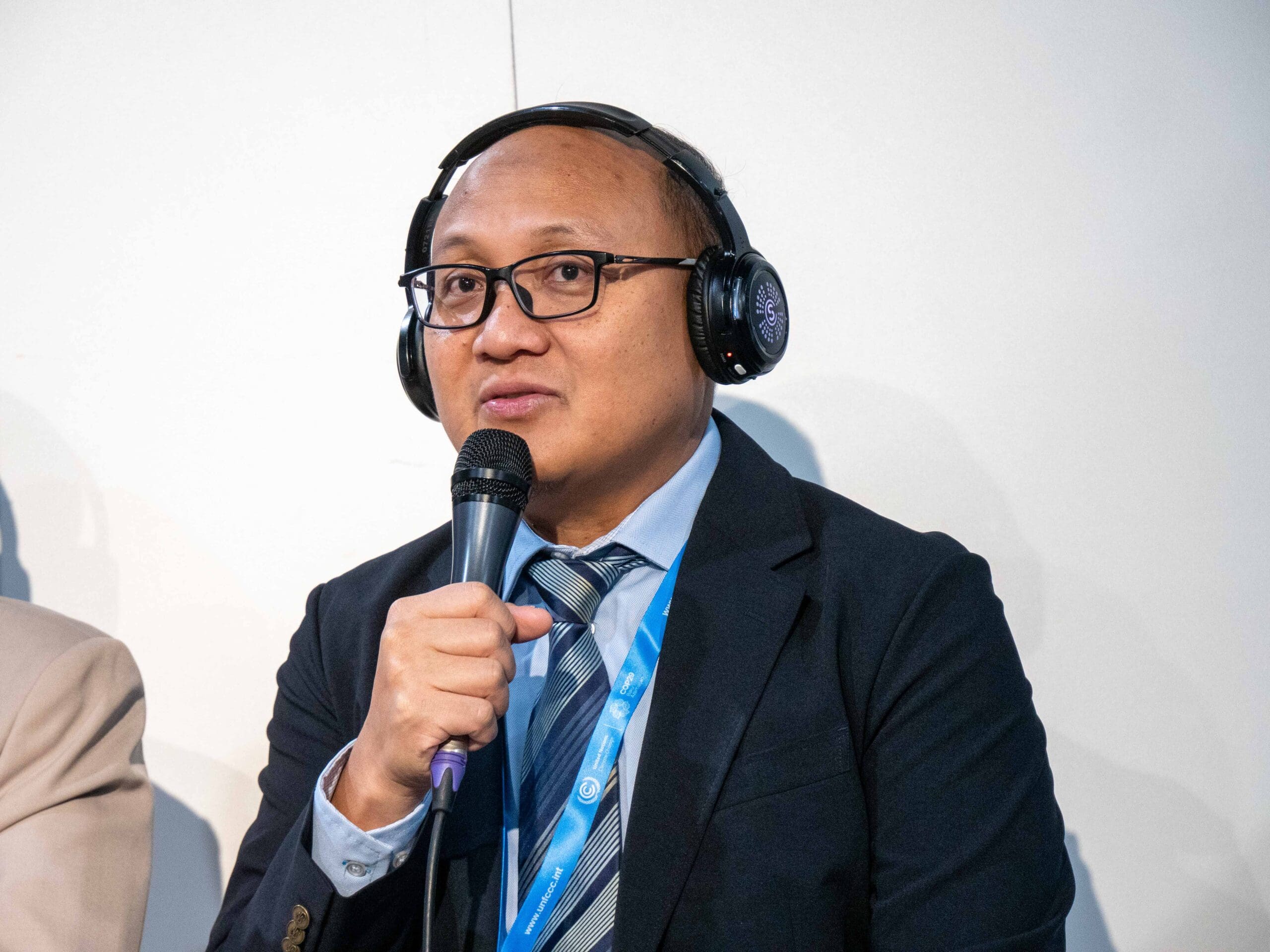
Nizhar Marizi, Ministry of National Development Planning (BAPPENAS), Indonesia, stressed the challenges of reaching ambitious targets for cleaner mixes of energy sources due to the competition between fossil fuels and renewables when there are abundant coal and gas resources. “It’s hard to have a fair playing field between those,” Marizi said, noting that achievements are speeding up. He hoped the investment climate will improve for Indonesia in the next 5 to 10 years.
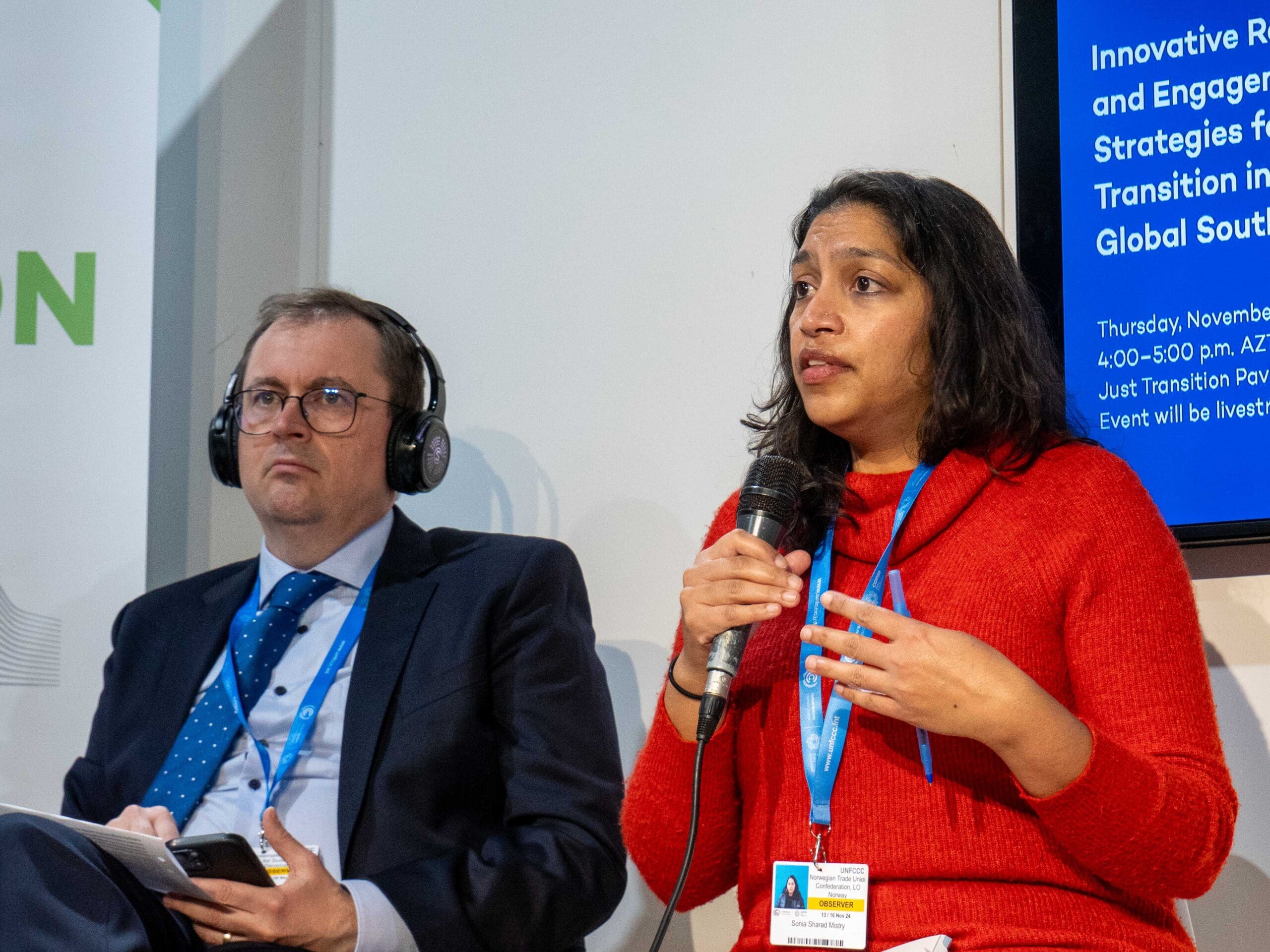
Sonia Mistry, Solidarity Center, emphasised coalition-building in Colombia involving engagement with community organisations, academic researchers, and workers to understand what justice means and to build a roadmap centred on the needs of workers and marginalised populations. Specific recommendations coming out of these participatory processes include retirement support, retraining, education, and resources to help workers relocate to find employment.
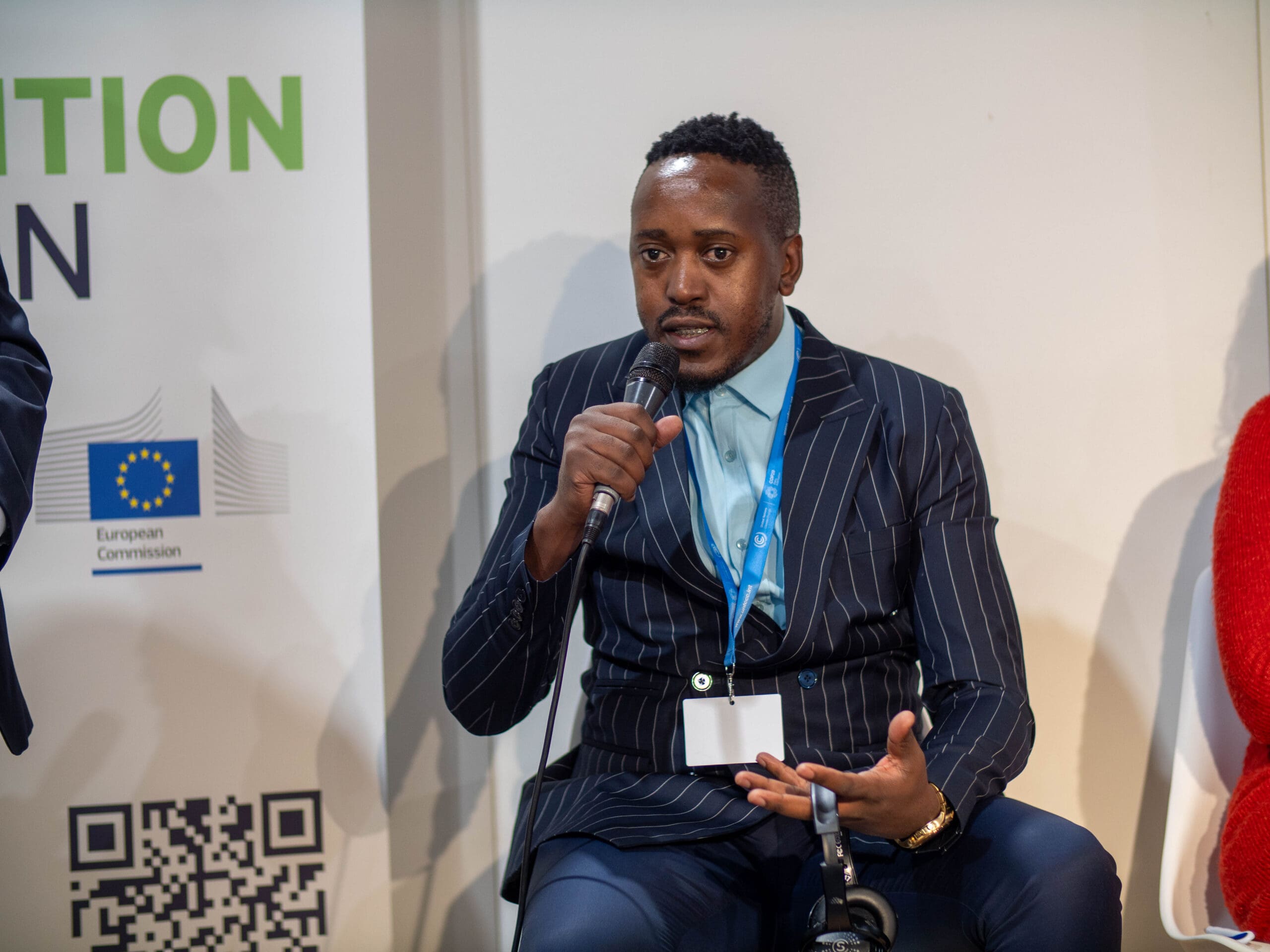
Zakhele Maya, Dipaleseng Task Force, underscored that intergovernmental processes, such as COP 29, tend to be disconnected from what is happening at the local level, and platforms are needed to help local communities meaningfully participate in these processes. Despite this disconnect, Maya said, “you would be shocked” by the extensive engagement happening within communities around just transition.
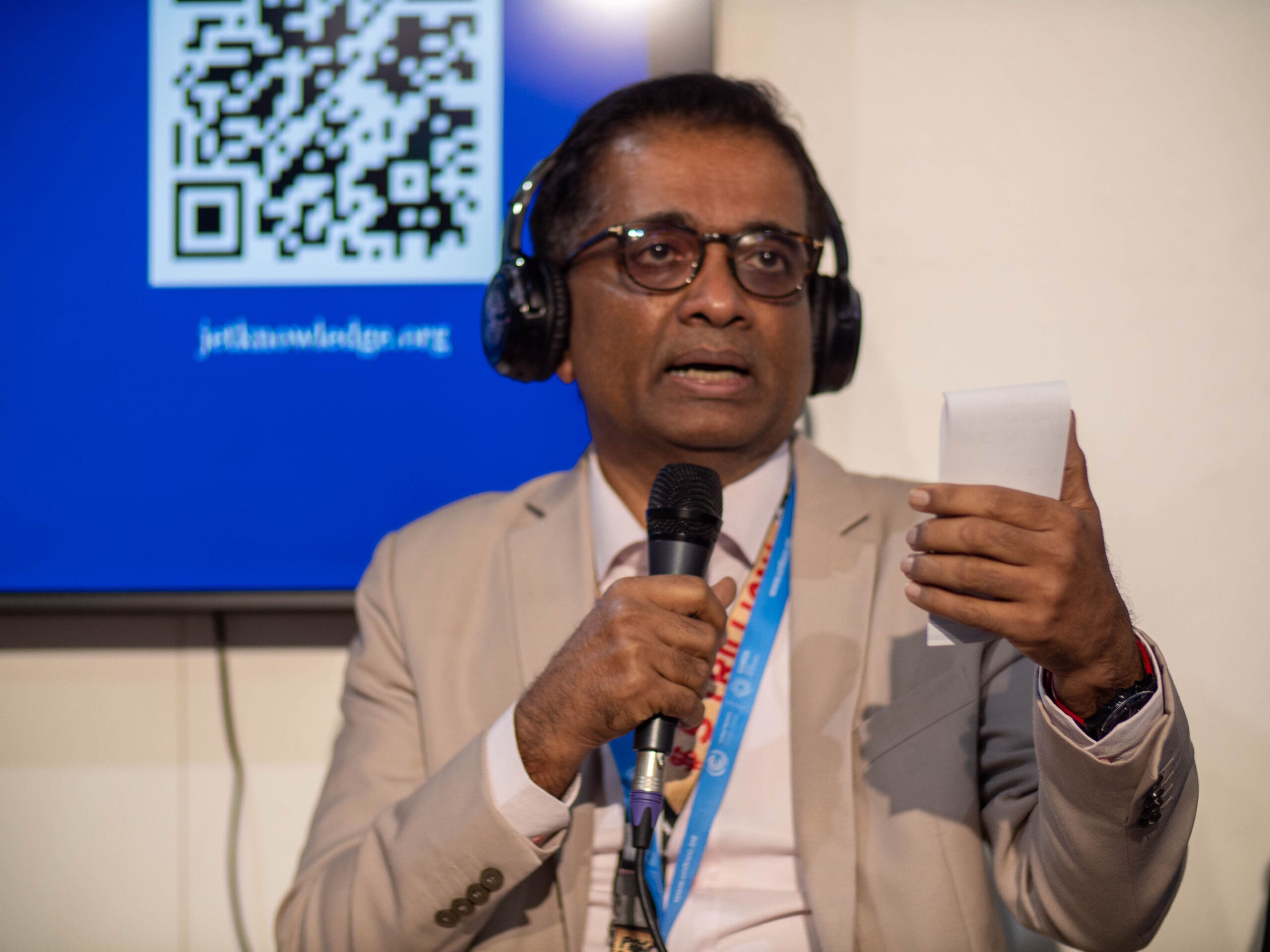
Nithi Nesadurai, Climate Action Network Southeast Asia (CANSEA), highlighted the IKI JET project in Indonesia’s coal mining region, which involves a wide range of stakeholders and experts, including national and regional governments, international labour organisations, Climate Action Network-International, the International Institute of Sustainable Development (IISD), the Wuppertal Institute for Climate, Energy and Environment, and local communities. One key to the project’s success, he said, is building trust between local communities and experts. Ultimately, he emphasised, research must be translated and simplified so that it is communicable to people on the ground in those communities.
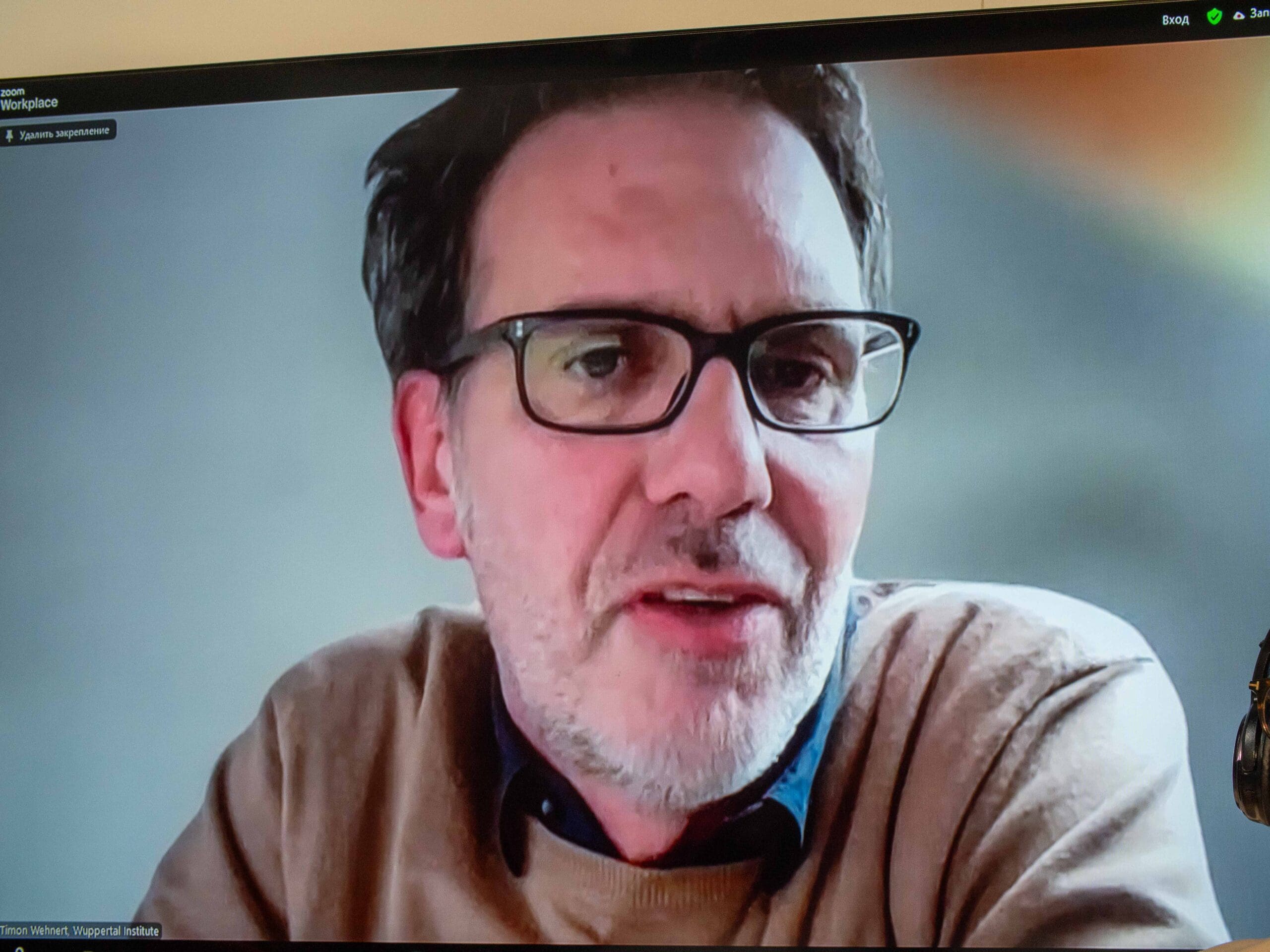
Timon Wehnert, Wuppertal Institute, stressed that one of the challenges for effective engagement in seeking just transition solutions is the difficulty of seeing the process from another person’s perspective. Wehnert highlighted his research involving social simulation games in Indonesia and Colombia where people adopt different roles—essentially “stepping into each other’s shoes”—as they engage in dialogue.
The panelists went on to discuss the need for directed and accessible funding, and the importance of institutionalised regional dialogues and cooperation between developed and developing countries. They also addressed questions from the audience on how to reduce power imbalances in just transition engagement processes.
The full event summary can be found on the ENB website.
Watch the event recording here.
Receive updates on just energy transition news, insights, knowledge, and events directly in your inbox.